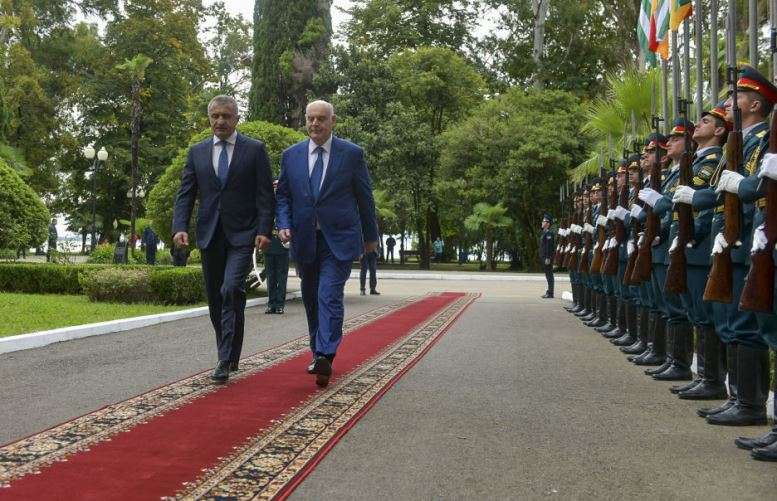
Geopolitical Report 2785-2598 Volume 11 Issue 6
Author: Guido Keller
The recent visit of the South Ossetian President to Abkhazia to celebrate Victory and Independence Day and the meeting among South Ossetian and Abkhaz presidents and ministers underline their cooperation and the role that these two republics play in the South Caucasian geopolitics.
On September 30th, 2021, within the framework of a visit to Abkhazia to celebrate the Victory and Independence Day, the official delegation of the Republic of South Ossetia headed by President Anatoly Bibilov took part in the ceremony of laying flowers at the Memorial to the people of Abkhazia who died during the Patriotic War of 1992-1993 (Georgian-Abkhaz War) in the Park of Glory in Sukhum, the Memorial to the First President of the Republic of Abkhazia Vladislav Ardzinba in the village of Lower Eshera and the Memorial to the second President of the Republic of Abkhazia Sergei Bagapsh in the village of Dzhgarda.
During the same day, the President of South Ossetia Anatoly Bibilov met the President of Abkhazia Aslan Bzhania to discuss further development of mutually beneficial cooperation in various fields and strengthen their ties in the international area.
In honour of the 28th Anniversary of the Victory and Independence of Abkhazia, a solemn military march was also held at the Glory Memorial in Sukhum, in which more than 500 military personnel took part (the units of the Ministry of Defense of Abkhazia, the cadets of the Sukhum Higher Combined Arms Command School, the units of the 7th Russian military base, and he border department of the FSB of Russia in Abkhazia).
The meeting between the parties highlights the increasing and positive cooperation between these two republics that obtained their status of independent states as a consequence of the Russo-Georgian War in August 2008 (also called the 5 Days War in South Ossetia) and after Moscow officially recognised both South Ossetia and Abkhazia. Even though both Sukhum and Tsinkhval are striving to be officially recognised by the international community, only Russia, Venezuela, Nicaragua, Nauru, and Syria identified them as independent states, their geopolitical influence on the South Caucasian dynamics cannot be underestimated.
The Georgian Government has always stated that South Ossetia and Abkhazia are part of the Georgian sovereign territory and accused the Kremlin of military occupation. On the other hand, both Tsinkhval and Sukhum have promoted their right to self-determination and independence from Tbilisi, comparing their case with Kosovo.
Due to their situation and the lack of international recognition, Tsinkhval and Sukhum rely on the Russian military, financial and diplomatic supports considered necessary to overcome the consequences of the confrontation with Tbilisi and their isolation status. On the other hand, the Georgian authority backed by Washington and Brussels has often accused Moscow of supporting South Ossetia and Abkhazia.
Conclusion
Considering this situation as a consequence of the fall of the Soviet Union, undeniably, South Ossetia and Abkhazia are a ‘geopolitical battleground’ where the Russian Federation and the West are confronting each other. On the one hand, the European Union is supporting Georgia to promote its Eastern Partnership and establish its influence in the South Caucasus, a strategic region that might connect Europe and Asia and EU members with the Caspian oil and gas fields. Also, the United States support Georgia in the framework of NATO strategy to establish military bases and partnerships in the post-Soviet space and surround the Russian Federation. On the other hand, taking into consideration the geopolitical role and also the historical background, the Russian Federation aims at maintaining its presence in the Caucasus, a region that is part of its blizhnee zarubezhe (near abroad) considered by Moscow as its lebensraum (vital space) together with Central Asia and the Baltic.



